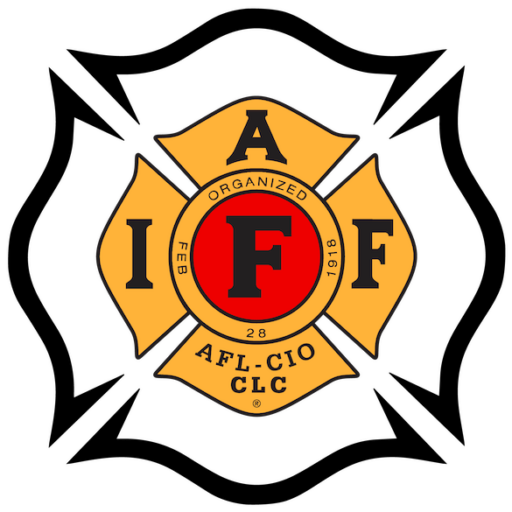Financial Fitness for 2021
The new year is a good time to reassess your financial health and take stock in some simple keys to success for your future.
The IAFF Financial Corporation (IAFF-FC) has developed a Financial Fitness toolkit with resources and tips for managing your finances now and throughout your career.
Start with these simple tips:
Spend less than you make. It is basic math. Write down what you make and exactly what you spend. If you’re spending less than you make and that extra goes into a savings, retirement or other investment account, that’s great. Share this very basic financial principle with the rest of your fire fighter family – it could make all the difference to someone just starting their career.
(Pro tip: Visit Protecting Your Finances in a Pandemic on the IAFF-FC website)
If you are spending what you make – or more than what you make – read on.
To spend less than you make, you have two choices: make more or spend less.
Spending less takes some discipline.
Your priority for financial health should be to make yourself the most important bill by paying yourself first. Set up an automatic deduction from your paycheck into a savings account. This is the best way to build an emergency fund. Then, start funding your employer-provided Roth 457 or regular 457 account (Canadian members can direct those dollars to an RRSP or TFSA) and keep building your wealth by making your money work for you.
Steps for Building Your Wealth
- Eliminate recurring charges. Review your credit card/bank account for any forgotten recurring charges, subscriptions you no longer need or streaming services you don’t use. Eliminate these to free up that money for better uses, including paying yourself.
- Find places to save. This is where discipline is needed. With the COVID-19 pandemic, many of us are spending less – including less on bars and restaurants. How will this change when we return to some sense of normalcy? It’s important to enjoy life, but what areas can be trimmed in your normal spending? Cable services? Do you need 6,000 channels? Maybe reduce the service to more of what you do want and need. Do you have or need 12 different streaming services? Maybe two or three is all you need. Starbucks every day can also add up. Cut back to one visit a week and stash the savings.
- Look around your house. Items stacked in your garage or in closets and drawers that you don’t use can be turned into cash to help build your emergency fund. Facebook Marketplace, Craigslist, Nextdoor or Ebay are all good places to sell unwanted items.
- Resist the urge to buy the latest gadget. Wait until the price drops and make do with the older model.
- Skip the new car. Let someone else take the 20-30% drop in value when they drive it off the new car lot. Buy a quality late (new to you) model and be 20-30% more financially fit.
- Refinance your mortgage. Interest rates are the lowest they’ve been in more than 50 years. If you haven’t refinanced in recent years, see if you can reduce your interest rate and save significantly over the life of your loan. Keep in mind that there are unavoidable costs associated with a refinance. A reduction of 1% or more in your interest rate could mean a significant monthly savings. Evaluate if a refinance makes sense for you using this refinance calculator.
- Debt Eliminate your existing debt – all of it if you can. Credit card interest rates mean you pay much more for something over time than you would if you saved and bought the item with cash. Before you plan to eliminate credit card or other debt, see if you can move your balances to a lower interest rate card, then close the higher interest rate accounts. At the same time, stop using the card. Carry cash or use a debit card or account that is connected to your checking account. When the allocated money is gone, that is it. Discipline.
- Declare 2021 a debt free year. Stop adding to the pile and work to eliminate what you have. Pay the most you can on the debt with the highest interest and pay the minimum amounts on other balances. When the highest is paid off, start on the next highest. This strategy saves you come interest costs. You can also pay off your smallest debts first – this may help you feel like you are making progress. Then keep tackling the others until they are paid.
- Increase your insurance deductibles. If you can afford higher out-of-pocket costs in the event of a claim, you can usually reduce premiums on your home and auto insurance by selecting a higher deductible. Putting the difference in premium into an emergency savings will mean you will have it in case you need it.
Once you have reduced expenses, it’s time to go to work on making more.
- Step or other salary increases. Take all or part of any increases in income to pay yourself. If you don’t get used to having it to spend, you won’t miss it.
- Consider adjusting your tax withholding. Members in the United States who get a refund each year can consider reviewing and adjusting paycheck withholding to get more in their paycheck and a smaller refund at tax time. Use that additional amount throughout the year to pay yourself!
- Work overtime shifts if available. A word of caution: use this additional pay to reduce or eliminate debt or build your savings, investments and wealth. Don’t start depending on them to finance your lifestyle.
- Study for those promotions. A higher rank means higher pay and more money in your bank account.
The bottom line: financial fitness is as important as physical fitness. Make it work for you in 2021.
